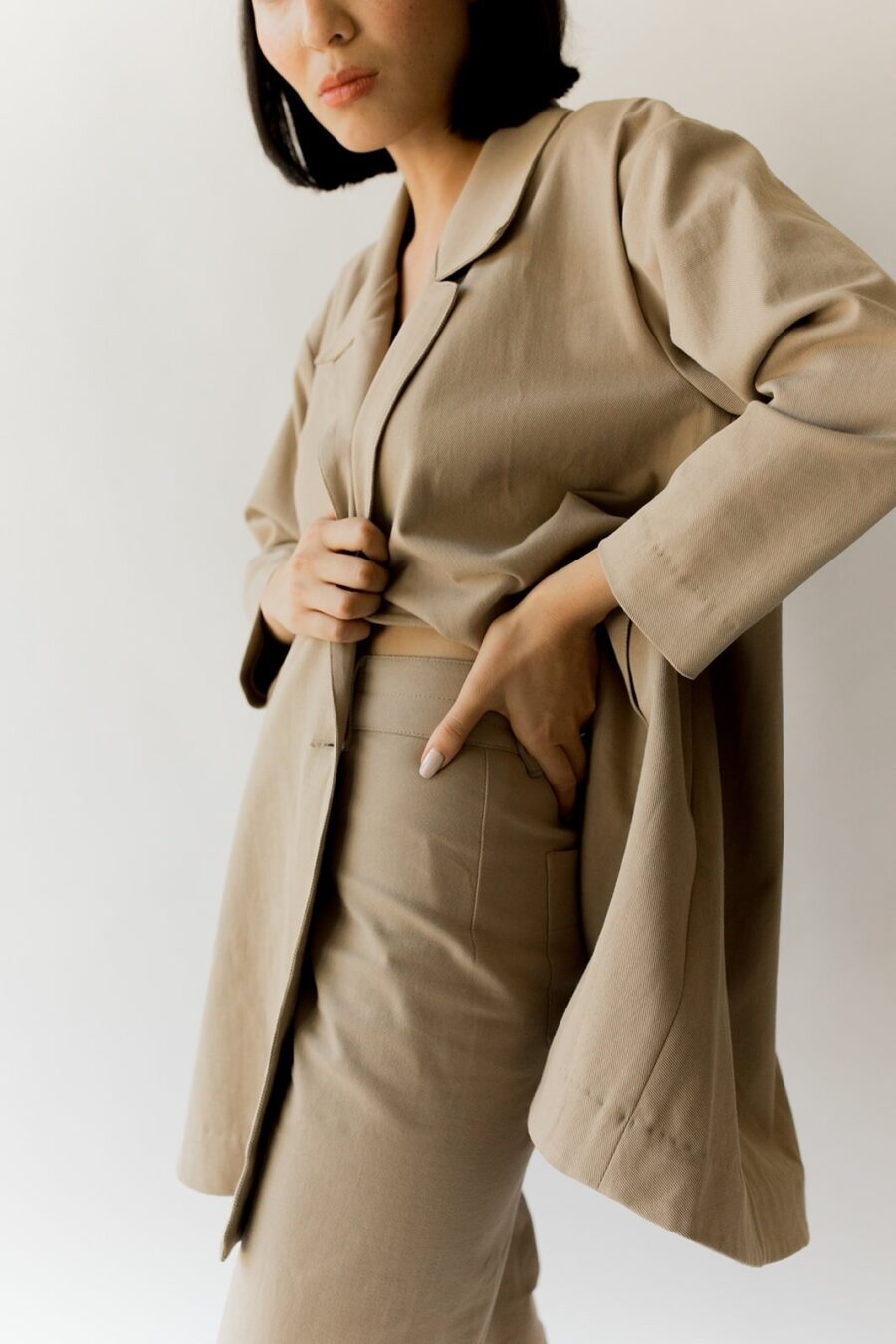
I’ve Been Off The Pill For Six Months: Here’s How I Stay In Tune With My Cycle
This is a story about a personal experience, not medical advice. If you’re considering getting off of the Pill or switching to a different form of birth control, consult your physician to make a plan that’s right for you.
I’ve been off the Pill for half a year.
“I was on it for nearly fifteen years—almost half of my life, which is a shockingly long time when I reflect on it.”
Before that, I was on it for nearly fifteen years—almost half of my life, which is a shockingly long time when I reflect on it. I’m still adjusting, and I know it will take time, but I already feel more in tune with my body’s natural cycle. All in all, my uterus is pretty happy, and so am I.
The first few periods were tough; they came days later than I expected and were heavier than when I was on the Pill. To my dismay, the cramps that haunted my teenage years made a brief comeback (and I was a baby about it). I noticed more hormonal acne. I was sweating more. My weight dropped a bit. It was a change from being on the Pill and having fewer (or no) cramps, shorter and lighter periods, and clearer skin—but it wasn’t too drastic of a difference.
In the last few months, the cramps have eased up, the acne isn’t as bad, I’m sweating less (to the relief of those around me), and my flow isn’t as heavy. I can definitely feel my body regulating itself hormonally. I’m grateful for this because my body mostly felt fine when I was on the Pill.
“It was my brain that suffered, and I knew I had to make a change.”
It was my brain that suffered, and I knew I had to make a change. I was depressed and my PMS symptoms were mostly mood-related: I was anxious, fatigued and lethargic, irritable, foggy, and generally not a functioning human being for at least a week or two every month. It felt like a cycle I couldn’t escape.
Six months after getting off the Pill, those symptoms have quieted down. I did restart an SSRI and am taking a mood stabilizer for the first time, so that could also be part of the reason I’m feeling more mentally stable. But placebo or not, I experienced some initial relief from my mood-related symptoms when I got off the Pill, and that trend has continued.
“All in all, my uterus is pretty happy, and so am I.”
It’s weird not knowing my cycle the same way I did on the Pill, but I’m lucky my periods are somewhat regular on their own. At most, I’ve been a few days or weeks late. Despite some unpredictability, being off of hormonal birth control continues to make me feel freer and more in control.
I make an effort to stay regular, honor my body, and feel my best through these methods:
I track my period.
I track my period the old fashioned way. I have a physical planner that I meticulously fill with tasks and notes. I’ve started circling the first day of each new cycle and marking the length and flow, along with any symptoms. That way, I have a reference point and can monitor when I’m about to start each month. I also use the Cycle Tracking and Health App to do essentially the same thing. I get notifications for period and fertility predictions. This allows me to identify when I may begin PMSing and gives me a heads up about my body’s hormonal state.
“Apps allow me to identify when I may begin PMSing and gives me a heads up about my body’s hormonal state.”
I’m not trying to get pregnant, and I’m currently not on another form of birth control—so I need to be extra careful with practicing safe sex. I use the app to track my ovulation and fertility, so I know when it’s safer or riskier to have sex. Monitoring your cycle and using a fertility awareness method can work if you’re doing it consistently and correctly—but there’s always room for error. It’s much safer to also use another form of contraception, like condoms.
For more options, check out The Good Trade’s roundup of apps for sex and period tracking.
I treat my PMS symptoms.
On the Pill or not, most women still experience PMS symptoms. Taking care of and easing my symptoms makes me feel more in control of my body. I use both natural and over-the-counter (OTC) remedies.
For cramps, I use heat pads, CBD, and Pamprin. I ensure I get rest but also much-needed exercise. The exercise part can be a challenge when I’m feeling lethargic, but I’m always rejuvenated afterward. Planned Parenthood also suggests you take OTC medication that works for you, indulge in a hot bath, and have an orgasm alone or with a partner, to help relieve cramps.
For breakouts, I wash my face in the morning and evening (minimum) and remove my makeup every night. Glossier’s Milk Jelly Cleanser is my go-to face wash because it’s hypoallergenic, dermatologist-tested, and safe for your eyes. If my hormonal acne is more severe, I use cleansers with salicylic acid or benzoyl peroxide. Mario Badescu’s Drying Lotion magically zaps blemishes overnight.
For anxiety, I fill up on passionflower, lavender, chamomile, and ginger teas. Tea, in general, is nice and calming, and underrated. As a big fan of lavender for anxiety, I diffuse or spray lavender essential oil and give myself time to breathe it in slowly. As previously mentioned, I also take an SSRI and mood stabilizer to help with overall mental health.
For bloating, I bring back that ginger tea and consume other ginger products—it’s an all-natural miracle worker. Other herbs and spices that help are chamomile, dill, fennel, basil, caraway, cumin, parsley, peppermint, and spearmint. Additional ways to ease bloating include gas relief capsules, abdominal massages, going for a walk, taking a warm bath, doing yoga poses, and keeping a food diary.
I take care of myself holistically.
Something I’m working on in 2020 is taking care of myself holistically. This means caring for my mental, physical, and spiritual needs. It’s not always easy, especially as someone who’s had a lifelong struggle with her mental health. I’m not always consistent, but I try (really try!) to do the following:
Eat a healthy diet
Take daily vitamins
Get the rest I need
Have a regular sleep schedule
Stay active and incorporate at least 30 minutes of exercise into my daily routine
Find healthy ways to cope with or minimize stress
Have a creative outlet for expression
Have a strong support system—because friends, family, and community truly have a positive impact on one’s overall well-being
Practice gratitude
When I feel healthy in all the ways a human should feel healthy, my periods aren’t as much of a burden.
I recognize my period—sans birth control, however it appears each month—is a natural part of how my body works. I need to take care of that body all the time. This realization encourages me to slow down and focus on myself, whether that’s being introspective and spending time alone, resting, being creative, or treating myself.
I’d encourage anyone, on or off the Pill, to do the same.
Have you recently gotten off the Pill? What has your experience been like, and how do you stay in tune with your cycle?
RELATED READING
Belinda Cai is a multimedia journalist who frequently writes about lifestyle, social and environmental justice, and identity and culture. She has a master’s in journalism and communications from the University of Southern California, and hails from Cincinnati, Ohio. When she’s not writing, she’s Wikipedia-spiraling, staying active, enjoying nature, and thrifting. Check out her website and Instagram.
